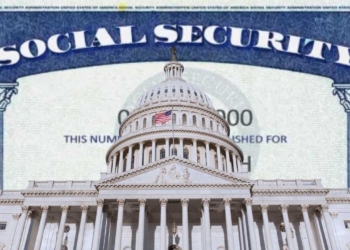The Internal Revenue Service’s (IRS) power to withdraw funds directly from the bank accounts of taxpayers with outstanding tax debts is a powerful and serious collection tool, known as a “levy.”
This process is not arbitrary; it follows a strict legal procedure designed to protect taxpayer rights while allowing the government to collect legitimately owed taxes. The IRS also has the right to recover money owed to the Federal Government for unpaid taxes.
Why might the IRS do this?
The legal basis for this action is found primarily in Internal Revenue Code (IRC) Section 6331. This section grants the Secretary of the Treasury (and, by delegation, the IRS) the authority to seize and sell the property and rights in property (including bank accounts) of any person who owes federal taxes and who has been notified and ignored the demand for payment.
The ultimate goal is to ensure tax compliance and maintain the integrity of the tax system. The IRS can’t simply access your account without warning. It must follow a specific process outlined by law:
- First, the IRS determines that you have a valid, unpaid tax debt (income tax, payroll tax, etc.) and issues a tax assessment.
- The IRS then sends you an itemized bill (such as a CP14 or CP501) stating the amount owed, including taxes, interest, and penalties, and requesting immediate payment.
- Next comes the notice of failure to levy. This is the critical and mandatory step. If you ignore the initial bills, the IRS must send you a formal notice by certified mail to your last known address, at least 30 days before levying. (Notice of Intent to Levy – LT11/Letter 1058 or LT Notice CP90/CP297).
The IRS will inform you of your right to request a Collection Due Process Hearing (CDP) under IRC Section 6330. There, you can explain your options for avoiding garnishment (full payment, installment agreement, offer in compromise, or declaration of inability to pay).
This is your last formal opportunity to resolve the debt amicably, showing goodwill, or to appeal before a garnishment occurs.
Levy Issuance: When the IRS Dips Its Hand into Your Bank Account
If by this point you have not paid your IRS debt, have not had your appeal considered valid, and have not reached an agreement (or do not request a CDP hearing within 30 days of the LT11/CP90 notice), the IRS may proceed to issue a bank levy order.
The IRS sends Form 668-A(C)DO to the bank where you hold your account(s). This legal order instructs the bank to freeze and hold any available funds in your account(s).
From this point on, the bank must immediately freeze the funds, although the money will not be sent to the IRS immediately. The law gives the taxpayer a period of 21 calendar days from the date the bank is informed of the levy.
If after 21 days the taxpayer fails to stop the garnishment (by making the payment, proving it was a mistake, or proving they are in dire financial difficulties), the bank will send the IRS the funds that cover the IRS debt, not a cent more. If the withheld funds exceed the debt, the excess must be returned to the taxpayer.
What accounts can the IRS seize for tax debt?
Virtually any type of account where you have a withdrawal right can be seized by the IRS for a debt:
- Checking accounts
- Savings accounts
- Investment accounts with immediate liquidity (such as money market accounts)
- Funds in credit unions
A joint account can also be levied, but the non-liable spouse or any other account holder can request the return of their portion, which is not subject to seizure by the IRS.
Remember that the law gives you the right to receive an LT11/CP90 notice, and the right to a CDP hearing (Section 6330), and both must be notified to you in writing (the hearing within 30 days of the notice).
Finally, always remember to consult with your attorney or IRS expert to know exactly what your situation is: we only provide general information, and only an expert in the field will give you the steps to follow.







